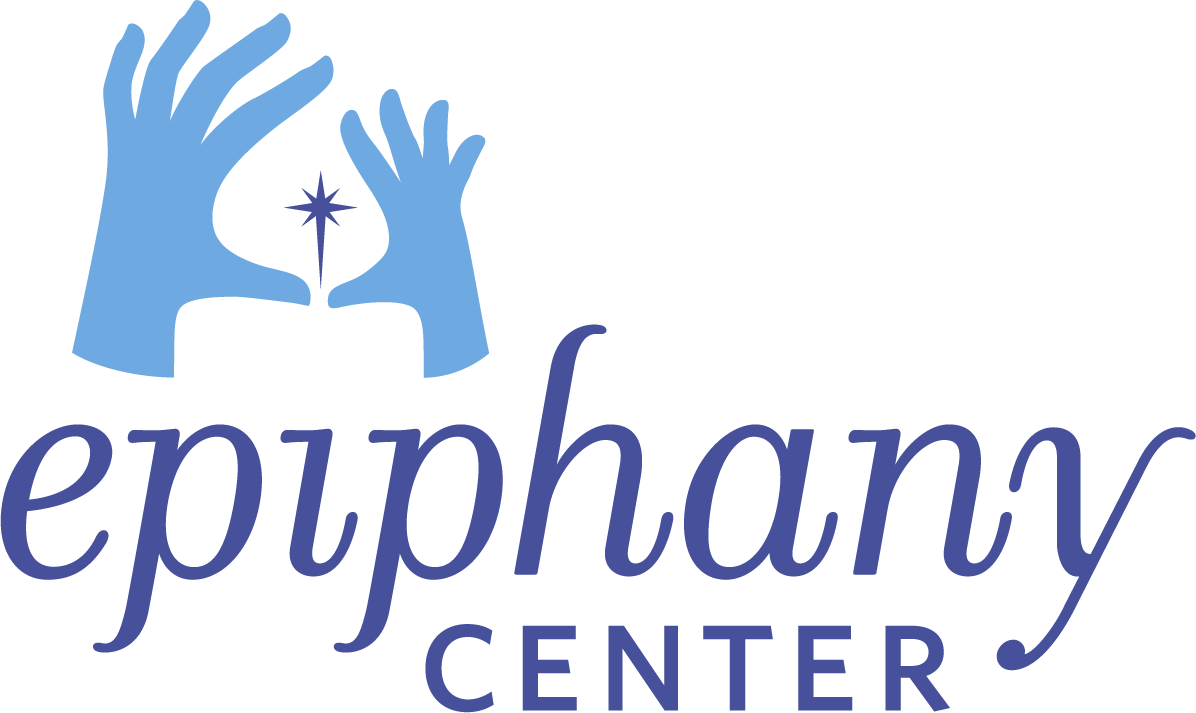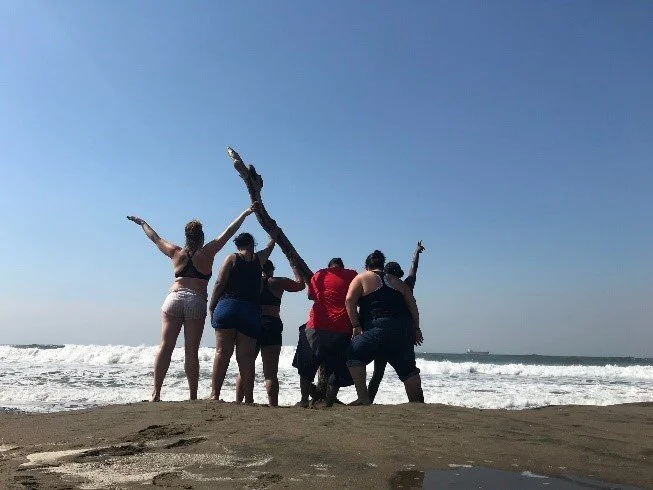On the Road to Recovery with Epiphany Center Intake Treatment Specialist Joji Gale Johns
Joji Gale Johns can be heard bouncing down the hallway in heeled boots, brightly greeting each person she meets, “Hello! How are you!?”. When hushed voices are called for, Joji’s sparkly face mask speaks volumes. Epiphany Center’s Intake Treatment Specialist, Joji is the first person whom the women encounter when they are considering the recovery program.
“I meet with potential and new clients on day one. Once they’ve entered the program, I establish initial appointments with the medical director and nurse practitioner, and ensure treatment groups are covered,” says Joji.
Joji has been passionate about giving back to the community and ending homelessness in the Bay Area since she was a girl. “I remember when I was in sixth grade, my mom shared the importance of volunteering. My schoolteacher asked us to bring canned goods to donate. My mom, older brothers and I went to the store and bought entire bags of groceries for those in need. It felt so good to give back,” she recalls.
Epiphany Center Mom and Baby Wellness Walks
SALVATION, NOT A SENTENCE
Born in Cebu, the oldest city in the Philippines, Joji emigrated to the Bay Area when she was six years old. As a teenager growing up in San Mateo, she started working as soon as she could. “In high school by the age of 17, I used to take the last period off so that I could work,” she recalls. However, from her late teens into her late twenties, Joji followed in the footsteps of several friends who were involved in street life, drugs, and eventually, incarceration.
“Jail turned out to be not a sentence, but my salvation,” says Joji. There, she quickly entered The Choices Program run by the Delancey Street Foundation. “When I first arrived, I noticed one particular pod of women was different. Rather than sleeping most of the day and watching TV, these women were well-behaved, their hair was done, they were studying, and taking classes. I wanted that too,” she recounts.
An in-custody program, Choices is operated by staff who at one point in their lives made the same mistakes as inmates in the program. Inmates are involved in community service projects designing greeting cards, t-shirts, dolls, and quilts to send to shelters, schools, and others in need. Ultimately, the program helps incarcerated women understand that they should not see themselves as victims and shows them they have inner strength and abilities and value as human beings who don’t need drugs.
“I felt engaged again. I learned to advocate for myself. I learned my behavior doesn’t define me. I may have made poor choices in the past, but now I can set boundaries.
I learned not to lie. I learned not to steal time away from my family, and that life is a gift,” says Joji.
Today, Joji shares her experience with each woman who walks through Epiphany’s doors. “Because I’ve had a good experience in recovery myself, I can really relate to the clients here. They understand I’m not here to judge them, but I do ask them to be fully transparent with me,” she says.
Recently named to Newsweek’s list of “America’s Best Addiction Treatment Centers,” Epiphany’s Residential Recovery Program (30, 60, 90 days) offers residential drug treatment at two sites for women and their young children. The programs provide support in parenting, independent living skills, and positive communications skills as well as recovery housing accommodations, recovery groups, case management and individual counseling, creating a Relapse Prevention Plan, vocational training groups, health education, health assessments, and referrals to primary healthcare providers.
HELPING CLIENTS NAVIGATE
“I tell clients that recovery is supposed to be fun too,” says Joji. “Many women in treatment don’t have close female friends. Here at Epiphany, for the first time in a long time, they become part of a community and need to learn to live with other women. Some may have had issues with mothers and sisters. Here at Epiphany, they can take a deep dive in treatment as to why they have issues – without drugs. Now that they are sober, they can begin to work through the emotions, to do the real work of recovery,” says Joji.
Joji sees her job as a privilege.
“I get to accompany clients on their journey.
I see them during intake on their first day until they graduate. I tell them that you are the driver of your own car. I’m here in the car to help you navigate. On their way out of program, I’ll hop out of the car. They can look in the rearview mirror, and I’ll be here,” she says.
“In fact, graduates frequently text me to share they went to a meeting, or they worked all their steps and are now a sponsor helping others,” says Joji.






